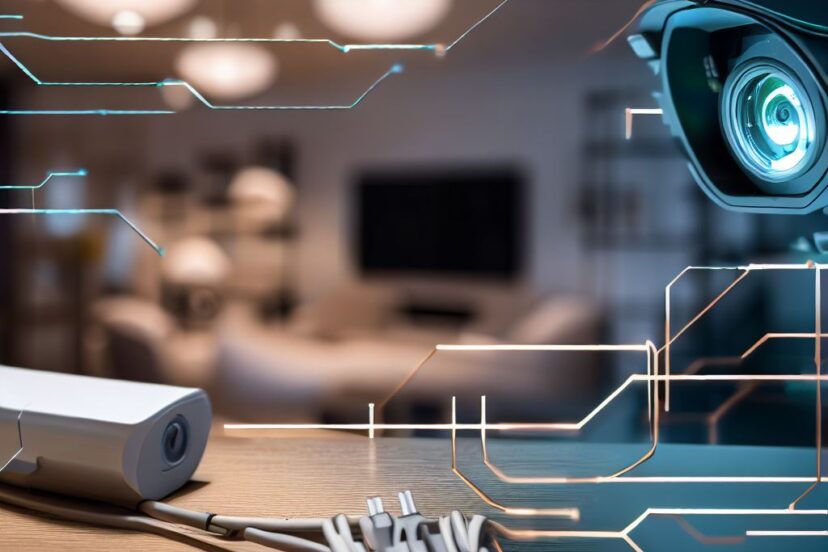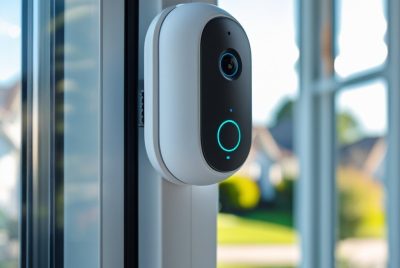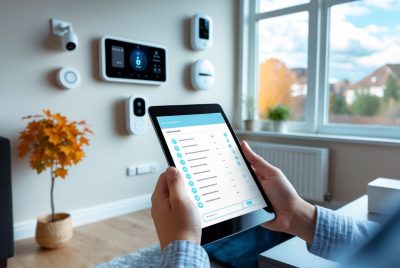Home Security Camera Wiring: Mastering the Maze
*We may earn a commission for purchases made using our links. Please see our disclosure to learn more.
Home Security Camera Wiring: Mastering the Maze
Stepping up your home’s safety game goes beyond just purchasing the latest camera models; the backbone of any robust surveillance system lies in its home security camera wiring. Delve into the intricate yet crucial world of wires and connections, ensuring that your security isn’t just skin deep.”
Why Wire Matters
You might be thinking, “It’s 2023! Why are we still talking about wires?” Trust me, even in an age of wireless wonders, the right wiring can make or break your home security setup.
Different Types of Wiring
There’s a plethora of options out there, but here are the main ones you should know:
- Power Over Ethernet (PoE): A favorite among many! PoE allows both power and data transmission over a single cable. Simplified setup? Yes, please!
- Coaxial Cable (BNC): A more traditional choice. Great for homes that already have these cables laid out.
- Wireless vs. Wired Cameras: Why opt for wires when there’s wireless? Well, wired cameras tend to be more stable, offering consistent quality without worries of signal dropouts.
Home Security Camera Wiring: The Setup
Alright, the fun part! Let’s get those hands dirty.
Tools You Need You’d need some cable clips, a drill, wire stripper, and of course, patience!
Steps for Successful Installation
- Plan your camera spots.
- Measure the distances (always add a little extra).
- Drill holes carefully and run the cables.
Choosing the Right Path for Wires Avoid places with a lot of foot traffic or where water can reach. Safety first!
Handling Wire Lengths Too much slack? Bundle them up neatly and secure with cable ties. Too short? Consider extenders.
The Evolution of Home Security Camera Wiring

Over the years, home security camera wiring has undergone a series of transformations, adapting to technological advancements and the ever-changing needs of homeowners.
A Glimpse of the Past Remember the bulky CCTV cameras of the ’90s? Those primarily relied on analog signals transmitted over coaxial cables. Clunky and less discreet, they served their purpose during their prime. The resolution was limited, but they gave homeowners a newfound sense of security.
Embracing the Digital Age With the digital age, came IP cameras. These harness the power of the internet, allowing for both data and power transmission via a single cable, thanks to PoE technology. The quality skyrocketed, offering crisp and clear images even in low light. Moreover, the flexibility of these systems allows for easy integration into smart homes, making remote monitoring a breeze.
Home Security Camera Wiring: Common Issues
While home security camera wiring ensures a reliable setup, like all things, it’s not immune to problems. Here’s how to troubleshoot some common issues:
Signal Interference Especially in older homes, other electronic devices can cause interference. This might manifest as grainy images or static noise. The solution? Keep your camera cables away from other electronic wires or consider using shielded cables.
Wear and Tear Exposed wires, especially those outside, can fall victim to the elements or even curious critters. Regularly inspect your cables for any signs of damage. Using conduits or protective sheathings can extend the life of your cables.
Loose Connections A camera not turning on or sporadic signal losses might just be due to a loose connection. Before panicking, ensure all connectors are securely in place. Sometimes, a simple push or twist is all it takes.
Home Security Camera Wiring: Maintenance
Wires need love too!
Keeping Wires Safe
Protect them from the elements. Use conduit or protective sheathing, especially outdoors.
Regular Checkups
Every few months, do a quick check. Look for wear and tear or any signs of rodent bites.
Benefits
Why Proper Wiring is Essential Stable connection. High-quality footage. Peace of mind. Need I say more?
Home Security Camera Wiring: Conclusion
So, there you have it! The world of home security camera wiring demystified. Whether you’re setting up a new system or optimizing an existing one, remember that a little attention to the wiring can go a long way. After all, in the world of smart homes, it’s the little details that matter.
FAQs
- Can I mix PoE with Wireless cameras? Absolutely! Tailor your setup to your needs.
- How often should I replace my wires? Generally, every 5-10 years or if you notice significant wear.
- Is professional installation better? It can be, especially for complex setups. But for the DIY enthusiasts, there’s a unique joy in doing it yourself!
- What’s the best brand for camera cables? It varies based on your needs. Always check reviews and compatibility.
- Are wired cameras hack-proof? No system is 100% hack-proof, but wired systems often have fewer vulnerabilities than wireless ones.




